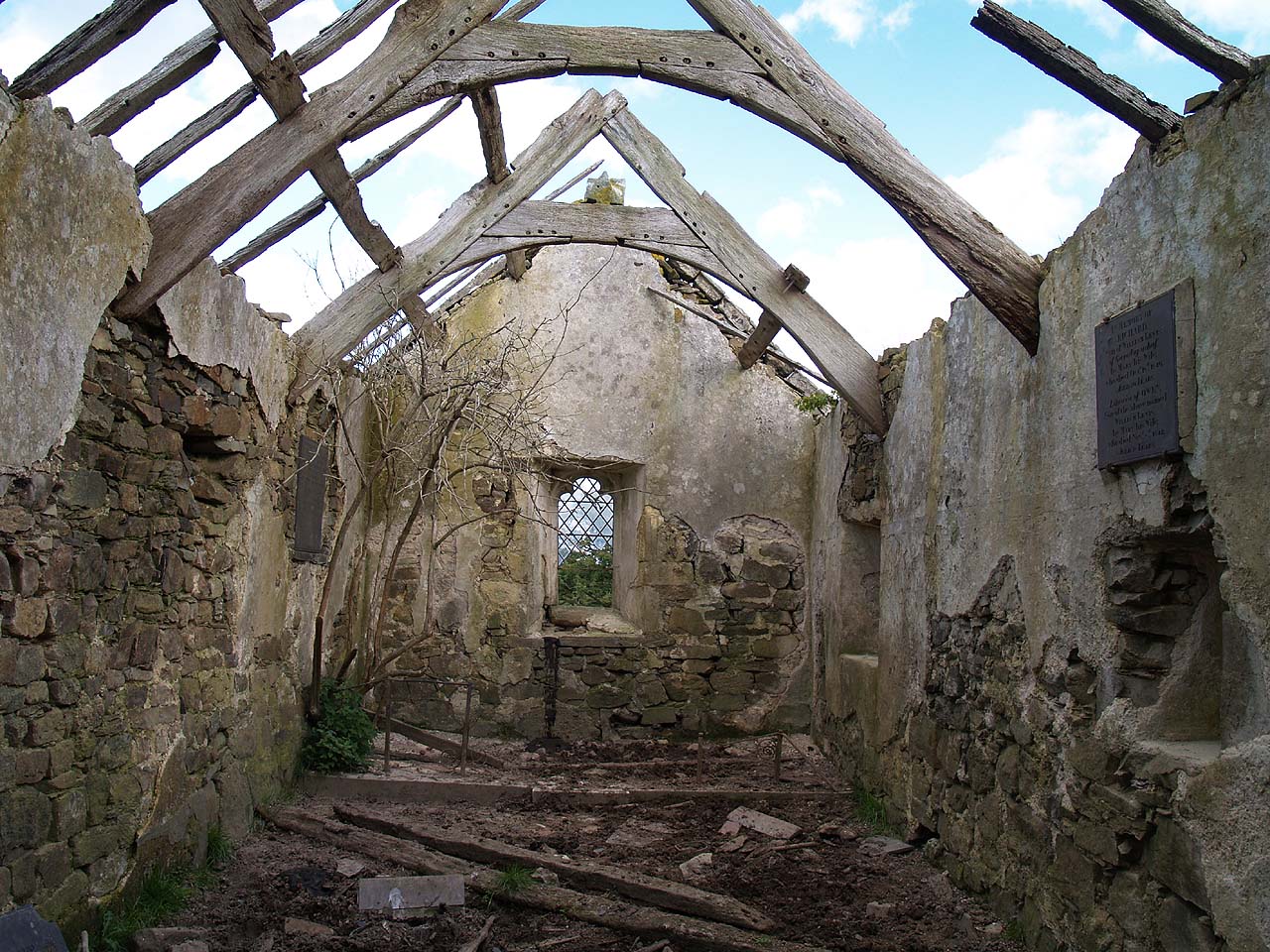 Repost from 2009,
Repost from 2009,  revised
revised  Tuesday, April 5, 2016 at 01:24PM
Tuesday, April 5, 2016 at 01:24PM  After 40+ years of walking with God I have met plenty of unhealthy Christians who belong to a church, but I have never met a healthy Christian who does not belong to a church. What are we to do with this? The currently popular solution is to hang out informally with our believing friends and declare, ‘This is my church. These people know me and love me. I receive nothing from organized religion.’”
After 40+ years of walking with God I have met plenty of unhealthy Christians who belong to a church, but I have never met a healthy Christian who does not belong to a church. What are we to do with this? The currently popular solution is to hang out informally with our believing friends and declare, ‘This is my church. These people know me and love me. I receive nothing from organized religion.’”
It’s difficult to stand in defense of the church when the church is so screwed up. It’s a terrible a way to run a railroad, but apparently the Father thinks it’s worth the risk. We were designed for community, but also something beyond mere community, we were designed for the church.
Many will object, and I invite you all to tell me gruesome tales of hypocrites, self-righteous blowhards, and sexual predators. I get it. The North American church is desperately sick, and in many cases the church hinders the spiritual growth of believers. But before we all decide have coffee and croissants down the street with the cool kids and call it a new kind of church, I’d like to suggest that God has given us a few clues about what He thinks makes up a church. The bottom line is: church is God’s idea, and we ignore it at our peril.
It’s a book-length discussion--a life-length discussion, actually--but here is a list of at least six vital parts of any real church:
§ The church meets together regularly: Sunday morning isn’t the only possibility. In fact, Acts 2:42-47 suggests they met together far more than North Americans might find comfortable. In a variety of settings, for a multitude of reasons, followers of Jesus meet together regularly and share their lives together. I don’t give a rip when or where, but regular, habitual gathering is a mark of the church.
§ The church has a defined structure: Structure is built into God’s order of creation. Single-celled organisms reveal astonishing complexity of function; in the human body there is individualized function. Without the structure of a skeleton, the body cannot stand. These physical realities point toward spiritual truth. Amazingly, the scripture seems to endorse a variety of church structures, but every New Testament church had a recognizable structure. We can disagree on what that structure may look like, but it’s not possible to read Acts or the Epistles without recognizing it’s importance.
§ The church provides authority: Authority! Just mention the word and people tense up. Abuses abound, guilt is common currency, and the church in North American differs little from any business down the street. Yet we all must personally come to terms with passages like, “Obey your leaders and submit to their authority.” (Hebrews 13:17) Paul’s letters to Timothy and Titus could be considered all about authority! Nearly everyone has a horror-story about abuse of authority in the church. Here’s my take: authority without compassion and relationship makes a sham of God’s Kingdom, but compassion and relationship without authority misses God’s Kingdom entirely.
§ The church is a proving ground for love and forgiveness. “Therefore, as God's chosen people, holy and dearly loved, clothe yourselves with compassion, kindness, humility, gentleness and patience. Bear with each other and forgive whatever grievances you may have against one another. Forgive as the Lord forgave you. And over all these virtues put on love, which binds them all together in perfect unity.” (Colossians 3: 12- 14) These words are impossible to live out in isolation. I believe the Father designed families and churches as the venues for love and forgiveness. How can we live out these words apart from our families, or the church--which is the family of God?
§ The church equips God’s people. Christian maturity requires a nurturing family atmosphere. Gifts of the Holy Spirit and the development of Christian character thrive in a healthy community. Entertainment apart from equipping is antithetical to God’s plan for the church--there are plenty of churches that amount to nothing more than TV shows. But fellowship and community without equipping also falls short of the mark. If there's no equipping going on, it's not fully the church. Jesus is into lab, not lecture. And it's not recess, either.
§ The church provides a unique corporate witness: There have been exceptional individuals throughout history. Saints and geniuses appear larger than life, and because they are are so exceptional, they are easily dismissed as individuals, even freaks. But who could dismiss an entire community of faith? “A new command I give you: Love one another. As I have loved you, so you must love one another,” said Jesus in John 13: 34 “By this all men will know that you are my disciples, if you love one another.” The early church would either get you healed or care for you until you died. Widows, orphans and outcasts of the first century knew there was a refuge called “the church.”
Object if you will: it’s easy to do. The church has failed in every area. Today’s post is not a defense of the way things are. The church in North America is desperately sick.
Some things should change. I believe the change begins with us as individuals. If you must leave your current church, then go. But where? If you can find a group of believers attempting to fulfill these six ideals you will land in a safe place. Leaving a sick church may be the best decision. Ignoring God’s plan for your personal growth as a disciple never is.
 Wednesday, December 2, 2015 at 12:53PM
Wednesday, December 2, 2015 at 12:53PM  God comes to us in unexpected ways, which means my expectation can be the very thing that causes me to miss him. This is a lesson from the first Christmas: God came to nation which eagerly longed for his coming, prayed for his return, and placed all their hopes in his presence. Yet most of the nation missed the hour of his visitation.
God comes to us in unexpected ways, which means my expectation can be the very thing that causes me to miss him. This is a lesson from the first Christmas: God came to nation which eagerly longed for his coming, prayed for his return, and placed all their hopes in his presence. Yet most of the nation missed the hour of his visitation.
Is this simply history, or is it a parable for our day?
For centuries the people of God had looked for a day of God’s personal visitation. Suffering under the twin fists of Rome and King Herod (a counterfeit king), the people of the nation remembered the golden age of King David a thousand years earlier. They knew King David was the prototype of God’s chosen vessel, a unifying and conquering King who established Israel in peace, security, and prosperity. After David’s reign many the prophets began to anticipate a day the God of Israel would not rule through a representative king; instead, God would come personally, take his place on earth, and establish Jerusalem as his capital city.
The day of God’s visitation would be both glorious and terrifying. The oppressed (Israel) would be rescued and the oppressor (Persia, Syria, Greece, Rome--or whomever was on top at the time) would be cast down. The people of Israel were looking for their freedom. They expected God to judge the rest of the world as well. They expected God would come to the Temple and establish his throne on the earth. They expected the Day of the Lord would be both great and terrible: great for them, terrible for their enemies. These expectations were based on their understanding of the scriptures and the encouragement of their teachers. These expectations shaped their view of the world, and became the very substance of their hope.
Who could have imagined that when God came to earth personally, he would be dressed in the frailty of an infant child? Who could have imagined that someday God would indeed come to the Temple, only to declare that the true Temple was inside a human body? Who could have imagined that this King would establish his throne in the hearts of men? And perhaps most incredibly, who could have imagined that the Day of Judgment would indeed come, but that the Son of God would take the judgment upon himself in order to save the guilty?
Of course, in our day, we know these things. We are safe from any misunderstanding. We can see clearly. We have the scripture. We have great teachers. We are God’s people. But what if God’s people now are no different from God’s people then?
The first Christmas serves as an Advent meditation today: how do my expectations blind me to the coming of the King?
 Thursday, October 29, 2015 at 06:28PM
Thursday, October 29, 2015 at 06:28PM  I’m not a church historian and I’m not an academic, but I have been a Bible teacher for a few years, and a pastor for fewer still. During these years I have noticed among believers two responses to the book of Acts. Some regard Acts as a book of history, while others consider it a description of the possibilities of church life. In my walk with God I started in the first camp and eventually arrived at the second.
I’m not a church historian and I’m not an academic, but I have been a Bible teacher for a few years, and a pastor for fewer still. During these years I have noticed among believers two responses to the book of Acts. Some regard Acts as a book of history, while others consider it a description of the possibilities of church life. In my walk with God I started in the first camp and eventually arrived at the second.
The book of Acts is indeed a history of the earliest church. It chronicles the growth of the gospel from Jerusalem to Rome. It details the actions of the Apostles and the first believers. It is inspiring the way great history should be. In the final analysis, however, history remains an account of the past, and the past is safely isolated from the present.
As I came to regard the book of Acts as normative, my comfortable Christian life was shaken to the core. Did the Holy Spirit inspire the book of Acts as an example for us today? Is it possible He wants us to consider the life of the earliest believers as normative? If so, then I—we—have fallen short. Consider just this one passage:
The apostles performed many miraculous signs and wonders among the people. And all the believers used to meet together in Solomon’s Colonnade. No one else dared join them, even though they were highly regarded by the people. Nevertheless, more and more men and women believed in the Lord and were added to their number. As a result, people brought the sick into the streets and laid them on beds and mats so that at least Peter’s shadow might fall on some of them as he passed by. Crowds gathered also from the towns around Jerusalem, bringing their sick and those tormented by evil spirits, and all of them were healed. ~ Acts 5: 12 – 16
Since I have determined to read the book of Acts as normative it has ruined me forever. Consider just a few points capable of changing our view of the church:
• This passage occurs immediately after two people dropped dead in the church (Acts 5: 1 – 11). Can you imagine the response if a husband and wife were carried away—dead—from an elders meeting in an American church today? Even more astounding: the deaths of Ananias and Sapphira did not cause a crisis in church leadership. Instead, the incident likely established the leadership even more!
• The earliest church had no facilities. They met on the Temple grounds out in the open. What a spectacle these followers of Jesus must have been. Everyone in town knew where they met and when. Christian community was demonstrated in public. The attraction of the church had nothing to do with facilities, bells or whistles but rather the authentic lives of the people.
• How many churches in our day are both “highly regarded” and also cause people to think twice before joining? (v13) The people in Jerusalem observed a group of believers so radical outsiders considered it a calculated risk to venture into their midst. In our day people join churches—and unjoin them—for a variety of reasons. The fear of God is not usually very high on anyone’s list.
• Notice the word, “Nevertheless” in verse 14: even though no one dared join them, “more and more men and women believed in the Lord and were added to their number.” Have you ever encountered an outreach program like that? The church in Jerusalem was so dynamic it was scary. It was also so dynamic outsiders couldn’t stay away! Imagine a church capable of inspiring fear and fascination.
• Peter, a leader in this church, had a reputation for healing. His reputation was so widespread the public observed his daily routine and dragged the sick into the streets just to be in his proximity. Peter’s “healing ministry” did not involve outreach, meetings, or even prayer! Yet the entire community knew the Peter was a follower of Jesus.
• The healing ministry associated with the early church in Jerusalem gathered crowds from the countryside. It would be no easy task to carry a sick family member up the hillside to Jerusalem, but the reputation of the first Christians was so strong that people came from literally miles around to encounter the same healing anointing that Jesus himself carried. These people did not go home disappointed, “all of them were healed.” If Acts is indeed intended to be normative, it presents a breathtaking standard: all of them were healed.
• Amazingly, this church still had a lot to learn! The next 23 chapters of Acts depict a group of believers still willing to learn and grow as followers of Christ. This Jerusalem church was not ethnically diverse. Its vision did not extend to the Gentiles. The leadership had plenty more to learn, and they made mistakes along the way.
There is a difference between history and revelation. It’s the difference between examining the scriptures or letting the scriptures examine us.